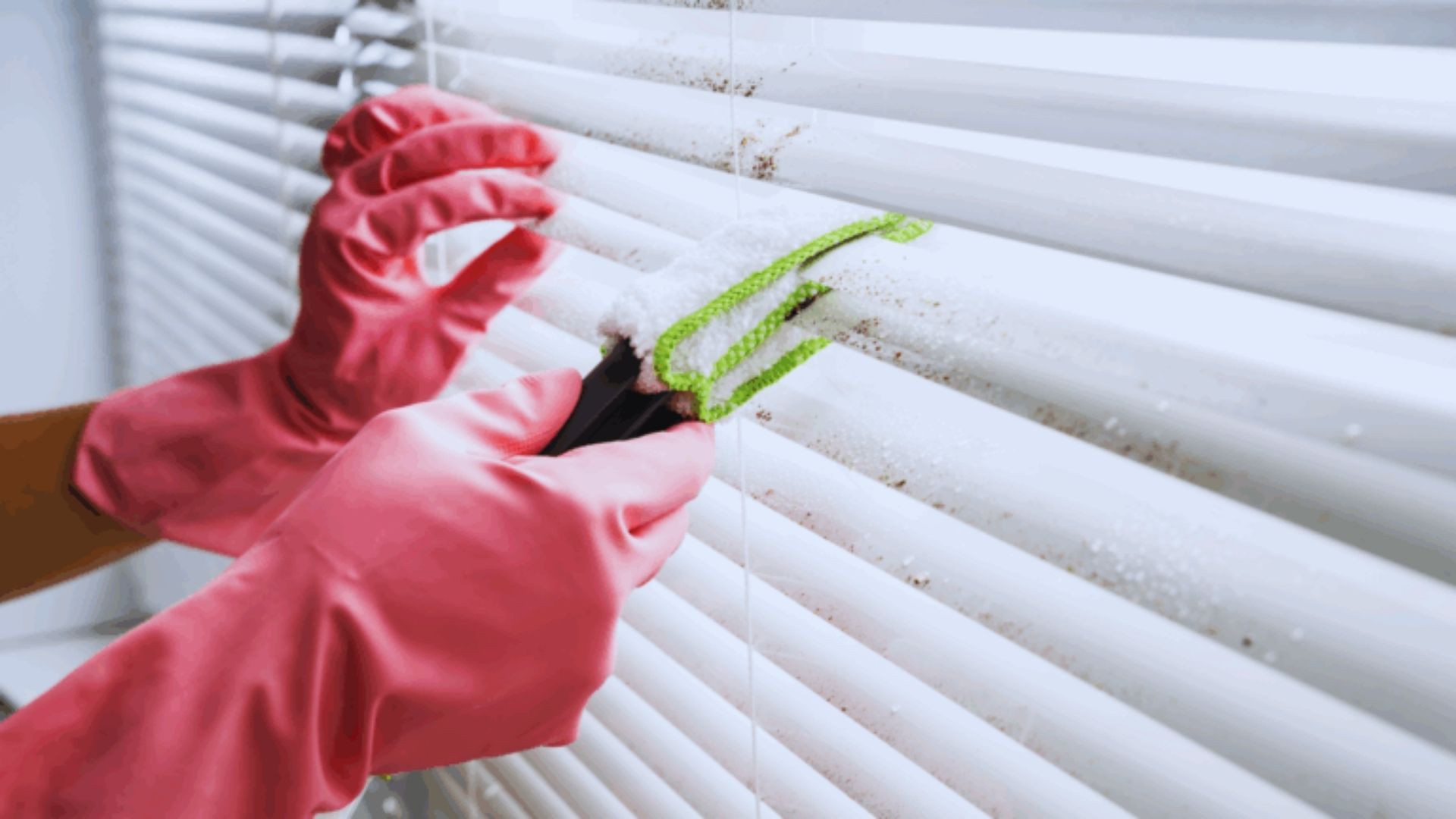When it comes to maintaining a clean and healthy home, blinds, shades, and drapes are often the most overlooked elements. These window treatments do more than just add style—they trap dust, allergens, and odors, and can even affect your indoor air quality. So how often should you clean your blinds, shades, and drapes to keep your home fresh and functional?
In this guide, we’ll break down cleaning frequency by material, room type, and season, while offering expert tips from Michigan’s trusted blind cleaning professionals.
Why Cleaning Blinds, Shades, and Drapes Matters
Your blinds, shades, and drapes act as filters between your home and the outside world. Over time, they accumulate:
- Dust and pollen from open windows
- Pet dander and hair
- Cooking residues and smoke
- Mold spores in humid environments
Neglecting these surfaces can lead to:
- Increased allergy symptoms
- Lingering odors
- Premature wear and discoloration
- Reduced energy efficiency
Regular cleaning not only improves air quality but also extends the life of your blinds, shades, and drapes, saving you money in the long run.
General Cleaning Guidelines
Here’s a quick breakdown of how often you should clean your blinds, shades, and drapes, depending on usage and environment:
| Window Treatment | Light Cleaning | Deep Cleaning |
| Blinds (wood, faux wood, aluminum) | Weekly dusting | Every 6–12 months |
| Fabric Shades (Roman, cellular, roller) | Monthly vacuuming | Every 6–12 months |
| Drapes (lined or unlined) | Monthly vacuuming | Every 12 months |
| Commercial Blinds | Bi-weekly dusting | Every 3–6 months |
These are general guidelines. Homes with pets, smokers, or high humidity may require more frequent cleaning.
Room-by-Room Recommendations
Different rooms have different cleaning needs. Let’s explore how often you should clean blinds, shades, and drapes based on location:
Bedrooms
- Why it matters: Dust and allergens accumulate quickly.
- Recommended frequency: Light cleaning weekly; deep cleaning every 6–12 months.
Kitchens
- Why it matters: Grease and food particles cling to surfaces.
- Recommended frequency: Light cleaning bi-weekly; deep cleaning every 3–6 months.
Bathrooms
- Why it matters: High humidity can lead to mold and mildew.
- Recommended frequency: Light cleaning weekly; deep cleaning every 6 months.
Living Rooms
- Why it matters: High traffic and exposure to sunlight.
- Recommended frequency: Light cleaning weekly; deep cleaning every 12 months.
Commercial Spaces
- Why it matters: Professional appearance and hygiene.
- Recommended frequency: Light cleaning bi-weekly; deep cleaning every 3–6 months.
Material Matters: What to Know Before You Clean
Not all blinds, shades, and drapes are created equal. Cleaning frequency and method depend heavily on the material:
Wood Blinds
- Avoid moisture; dust weekly with a microfiber cloth.
- Deep clean with wood-safe cleaner every 6 months.
Faux Wood & Aluminum Blinds
- More durable; can be wiped with damp cloth.
- Deep clean with mild soap solution every 6–12 months.
Roman & Cellular Shades
- Vacuum monthly with brush attachment.
- Professional cleaning recommended annually.
Roller Shades
- Wipe with damp cloth monthly.
- Spot clean stains as needed.
Drapes
- Vacuum monthly using upholstery attachment.
- Dry clean or steam clean annually.
Seasonal Cleaning Tips for Michigan Homes
Michigan’s changing seasons bring unique challenges for blinds, shades, and drapes. Here’s how to stay ahead:
Fall (September–November)
- Why: Dust, pollen, and early heating systems stir up allergens.
- Tip: Schedule professional cleaning before holiday hosting.
Winter (December–February)
- Why: Closed windows trap indoor pollutants.
- Tip: Clean drapes and shades to improve air quality and insulation.
Spring (March–May)
- Why: Pollen and moisture increase.
- Tip: Focus on allergy reduction with deep cleaning.
Summer (June–August)
- Why: Sun exposure fades fabrics.
- Tip: Rotate or clean window treatments to preserve color.
DIY vs. Professional Cleaning: What’s Best?
While light cleaning can be done at home, deep cleaning blinds, shades, and drapes often requires professional tools and expertise. Here’s why:
- DIY Limitations:
- Risk of damage to delicate fabrics
- Incomplete removal of allergens
- Time-consuming and labor-intensive
- Professional Advantages:
- Specialized equipment for deep cleaning
- Fabric-safe solutions
- Repairs and restoration services
If you’re unsure whether your window treatments need professional care, look for signs like discoloration, persistent odors, or mechanical issues.
When to Repair vs. Replace
Sometimes cleaning isn’t enough. Here’s how to tell if your blinds, shades, and drapes need repair:
- Frayed cords or broken mechanisms
- Warped slats or bent frames
- Stains that won’t lift
- Fading beyond restoration
Repairing is often more cost-effective than replacing, especially for custom or high-end treatments. Many blind cleaning services also offer repair options—ask about bundled packages for cleaning and maintenance.
Ready for a Refresh?
Your blinds, shades, and drapes deserve more than a quick dusting. Whether you’re preparing for fall, battling allergies, or just want a cleaner, brighter home, professional blind cleaning makes a noticeable difference.
If you’re in Michigan—especially near Novi—contact our blind cleaning experts today to schedule your service. We’ll help you restore your window treatments to their best condition, so your home looks and feels fresh year-round.



